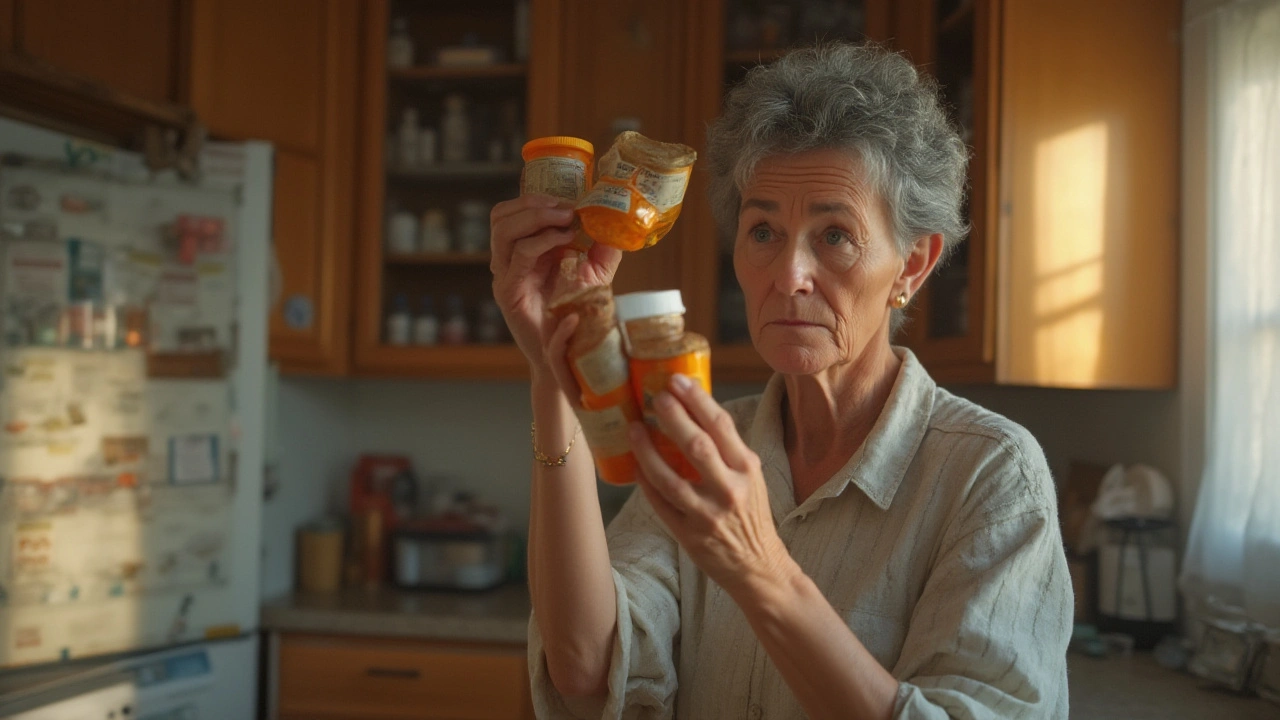Pills and ointments might seem harmless on your shelf, but slip-ups with medication can mess up much more than just your plans—they can harm your health and even impact the environment. Ever tossed a bottle of pills in the trash or down the toilet? Turns out, that can push pharmaceuticals into water supplies, affecting wildlife and even drinking water. Drug safety isn’t just about not overdosing; it’s about taking care of yourself, your family, and your community.
First off, always track expiration dates. Expired meds can lose their punch or become risky. If you find old bottles in your cabinet, resist the urge to chuck them in the garbage or flush them. Most local pharmacies and police stations offer safe return drop-offs. If that’s not an option, some medications can be mixed with coffee grounds or cat litter, sealed in a bag, and thrown away. That keeps curious kids, pets, and wild animals from getting into trouble.
Travel plans? Never just toss a few pills in a zip-top bag. Keep your meds in their original containers with clear labels, especially if you’re crossing borders. Some countries, and even U.S. states, have strict rules—get caught without proper packaging and you might lose your medicine, or worse, face delays at security. Always bring a bit extra in case of travel hiccups, and double-check the essentials if you need things like epinephrine, insulin, or an inhaler.
By now, you might wonder whether healthy living can let you skip meds altogether. Sometimes, yes—diet and exercise make a big difference. But for issues like high blood pressure or asthma, ditching meds cold turkey isn’t wise. If you’re unsure, ask your doctor what can realistically be handled through lifestyle, what needs a prescription, and whether it’s possible to reduce your dosage over time.
Let’s not forget the little ones. Baby-proof your medicine cabinet just like you would lock up cleaning supplies. When packing a first aid kit for a newborn, stick to the essentials: infant acetaminophen, a bulb syringe, small bandages, and possibly a thermometer. Store everything out of sight and out of reach. Babies love to explore, so it pays to be extra careful.
The truth? Medication mistakes usually come from either rushing or not knowing the best practices. Double-check labels before popping a pill—look for names that sound similar but work very differently. For example, mixing up acetaminophen and acetazolamide could cause a world of trouble.
Drug safety’s not just a chore—it’s peace of mind. Build a habit of reading directions, store meds safely, and stay curious about the smart ways to manage and dispose of them. It’s how you protect your health today, and safeguard kids, pets, and the planet for tomorrow.

Are expired drugs dangerous? Find out how old medication can actually harm you, what risks you need to know, and how to safely discard unused medicines from your cabinet.